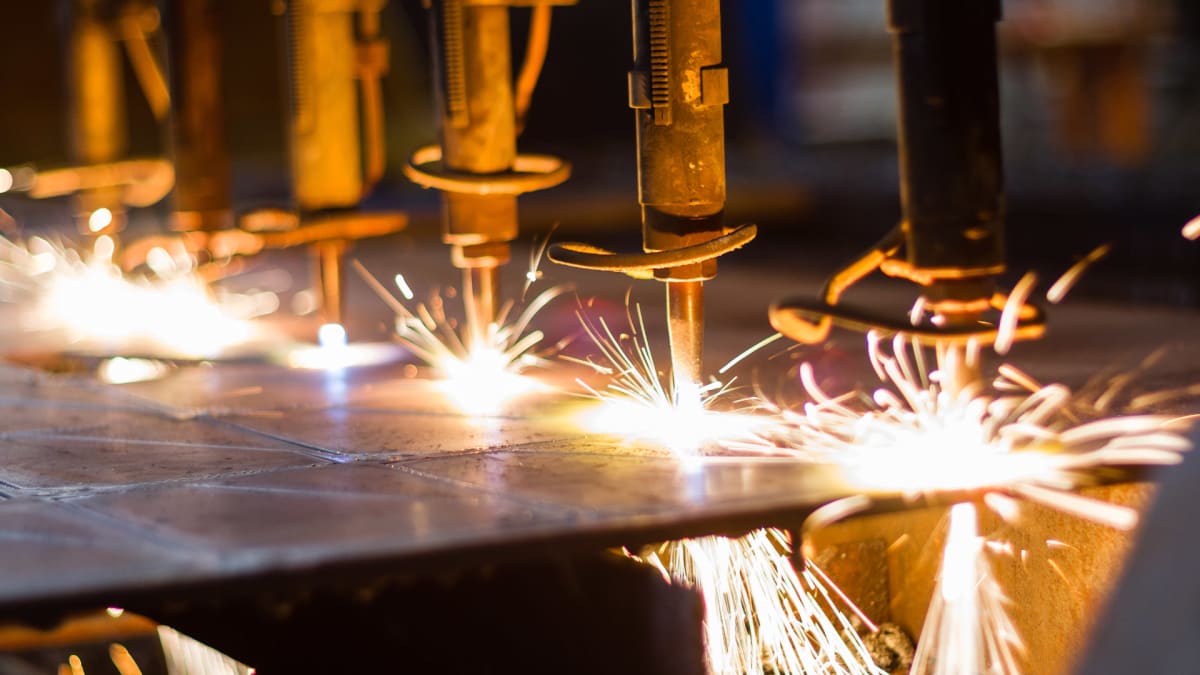
The supply chain woes impacting auto manufacturers are improving as inventory for raw supplies and semiconductor chips and logistics are rebounding.
Volatility remains but the supply constraints are "easing," Goldman Sachs analyst Mark Delaney wrote in an April 12 report.
DONT MISS: Tesla Rival Rivian Announces Very Aggressive Goals
The improvements have occurred in electronics components and electronics manufacturing services.
"Several of these companies benefit from rising content per device, have diverse customers and/or end market exposure, sell into markets that we think can be stable/grow even in a tough macro environment, and have solid cycle to cycle free cashflow generation," he wrote.
Companies such as automaker Volkswagen (VLKAF) and automotive seating and automotive electrical systems company Lear (LEA) discussed improved business conditions on a recent earnings call and at an investor conference.
VW said it expects the "structural shortage of semiconductors will improve and that raw material supply and logistics will gradually stabilize in 2023" during a March call about the fourth quarter, the report said. The automaker also said it expects growth in the mid-teens in vehicle deliveries in 2023 year-over-year.
Lear said in mid March that business conditions had improved compared to their initial expectations when the company issued 2023 guidance. The company also said it is "tracking toward the mid-point to higher end of its full year guidance," Delaney wrote.
But scheduling volatility during the first quarter persisted and uncertainty about demand from consumers will "keep most suppliers from making significant upward revisions to full year outlooks," he wrote.
Automakers GM (GM) and Ford (F) have also increased their expectations for higher growth.
GM upgraded its guidance by 5% to 10% on higher wholesale volume year-over-year while Ford "assumes improvement in supply chain and industry volume in its 2023 guidance," Delaney wrote.
IHS Markit, an automotive data and analytics company, also increased its estimate in January from 85 million vehicles to 85.2 million vehicles in March for global production in 2023 while Goldman Sachs forecasts 84.8 million vehicles.
Sales of new vehicles rose by 8% year-over-year during the first quarter in the U.S. and by 12% in Europe year-over-year during the first two months of 2023, compared to a decline of 13% during the first quarter year-over-year, according to data from Goldman Sachs and IHS.
Semiconductor Supply Gets Better
The number of chips that are in shortage is declining, but the lack of key semiconductor parts will continue through part of this year, the report said, citing industry participants during fourth quarter 2022 earnings reports.
"We think the semi issue should improve over the course of the year and help alleviate incomplete kitting problems (i.e. the ‘golden screw’ issue), in part with semi companies expanding capex for mature products per our technology, media, and telecom analysts," Delaney wrote.
Auto companies have also been working on "qualifying" alternative sources to provide more flexibility, he said.
The weaker demand in several non-auto markets should help move supply of semiconductor parts to autos.
Consumer Demand Falling
Auto demand appears to be softening as consumers have also cut back on spending.
This outlook is "consistent" with Goldman Sachs which now believes that the probability that the economy enters into a recession during the next 12 months is 35%, an increase of 10% from its previous estimate, the report said.
Consumers are worried about the possibility of a recession - the University of Michigan Consumer Sentiment index fell significantly in 2022, improved slightly from December to February, but dipped again in March to 62.0 from 67.0 in February.
Lending will also be constrained, especially since almost 30% of all auto loans are underwritten by credit unions. The recent banking collapses and stress in the financial services sector could mean a credit crunch, hampering the ability of consumers to purchase new vehicles.







